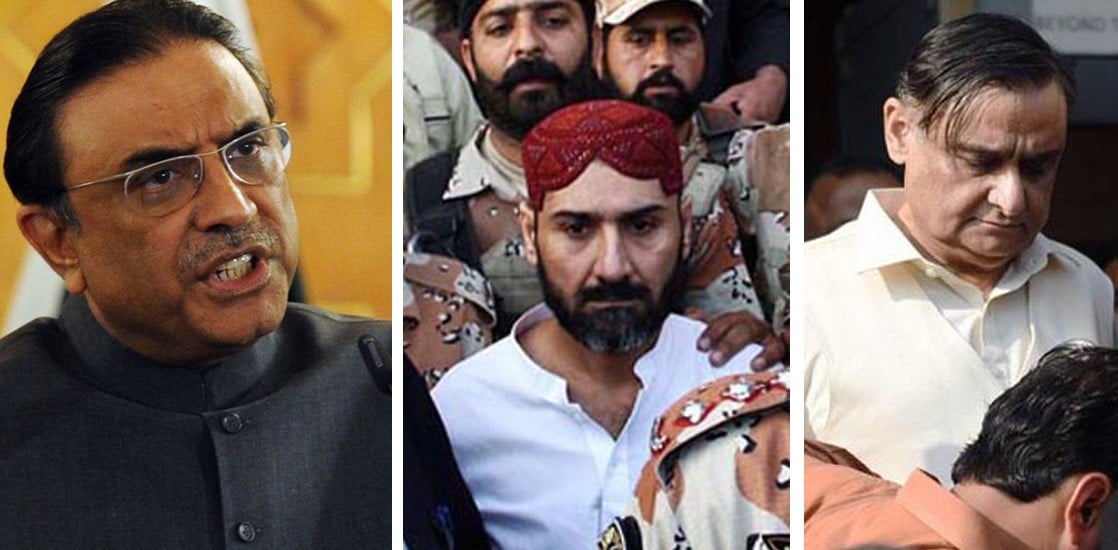
The way NAB and other federal agencies are acting in Sindh shows the province is being politically victimised

The interference of National Accountability Bureau (NAB) in the Sindh government’s affairs has vexed the Pakistan People’s Party (PPP) for long now and caused public friction between the provincial government and the federation.
The Sindh government has made it clear time and again that it feels NAB is targeting a single province and accusing it of all sorts of wrongdoings.
When Prime Minister Nawaz Sharif recently hinted at clipping the autonomous body’s powers, the PPP’s Co-Chairman Bilawal Bhutto Zardari called the PM’s statement "mere eyewash", insisting that NAB is taking orders from the federal government and has "paralysed" the provincial government which, he believes, is working beyond its jurisdictions.
Some PPP leaders believe that after the 18thAmendment, provinces can take care of their accountability while agencies like NAB and FIA should only be tasked with cases at the federal level.
"Such institutions have historically been used as a ploy to disrupt the democratic process," says Senator Taj Haider, PPP’s general secretary Sindh. He says the KP government has established a local accountability institution and Sindh has already drafted a bill for independent accountability commission, which will soon be operational.
Haider believes that the way NAB and other federal agencies are acting in Sindh goes on to show that the province is being politically victimised and the law has its own defects. "There are many loopholes in the current NAB ordinance, say, for example, the plea bargain. That is corruption and nothing else. And we know for a fact that such laws have been used only to scare the politicians when there is no martial law in the country."
Last week, NAB-Sindh revealed to the Sindh High Court that it has initiated an inquiry against former PPP minister, Sharjeel Inam Memon who is now living in self-exile, for embezzling Rs5 billion from the national exchequer. While a close aide of Asif Ali Zardari, Dr Asim Hussain, is in custody for several crimes including financial ones.
The PPP leaders feel that NAB has not accused any PML-N leader of any wrong-doing ever since it got into the aggressive mode over the past several months. And when it did, the prime minister intervened with the threat to tame it down.
However, in a bid to appease the PPP, the federal government offered to establish a judicial commission that will oversee the actions of NAB and FIA, which the Sindh government gladly accepted. But legal experts say that the accountability watchdog does have sweeping powers which were given to it by the parliament.
"The NAB Ordinance empowers the body to go into any corner of Pakistan, including Fata," says Shahab Usto, a leading constitutional expert in Sindh. "It can prosecute any holder of public office, including their proxies. In other words, the bureau can practically initiate an enquiry against every citizen, so to say that it’s trampling its jurisdiction is wrong."
Read also: Structural flaws?
Usto says that the law grants the body its independence, but if people want to use it for political purposes that’s a different matter. Commenting on PML-N’s offer to establish a judicial commission, he says there is no legal provision to do that but it is being done because it suits them.
"Lawmakers need to realise that while making a law, it is important to analyse its long-term repercussions," he says. "See for example, the Protection of Pakistan Ordinance. It gave sweeping powers to law enforcers to pick up anybody it deems suspicious and hold them in custody for 90 days. It’s against so many clauses of fundamental human rights, yet, it’s a law of our land."
Usto says that flaws like the option of the plea bargain clause in the NAB ordinance in a way makes corruption kosher. He named several politicians who returned one-third of the money they siphoned off from the public exchequer only to return after several years of debarment. "Such lacunas in the law should be smoothed out."
Senior journalist, Zahid Hussain, points out to the enduring dilemma of the anti-graft watchdog. "NAB has a history of being used as a political ploy, so politicians are generally awry when it is used against them or anybody close to them," he says. "But that does not mean there should not be any accountability," he adds.
He says when NAB was established under the Musharraf regime, many politicians were at first hounded, and those who chose to side with him were acquitted. "So one cannot take out the question mark that keeps hanging on its role."
Commenting on Nawaz Sharif’s recent statement against the body, Hussain says that the PM was quiet as long as NAB was actively pursuing cases in Sindh, but when it came to Punjab or people close to him, he reacted. "So, accountability is a touchy matter when it comes to your own. But leaders should find a way to keep its transparency intact and allow the body its full independence; that is how such autonomous bodies work the world over."